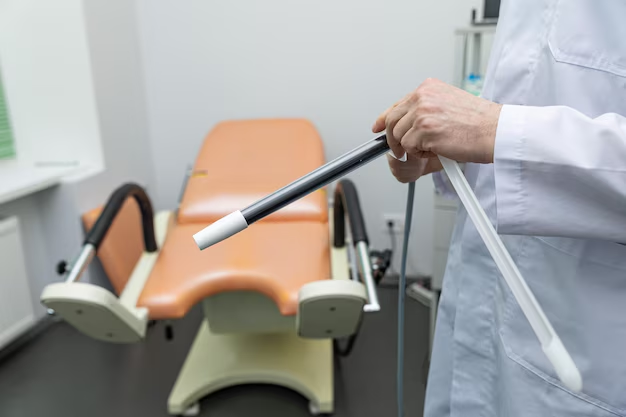Your Guide to Does Medicare Cover a Colonoscopy
What You Get:
Free Guide
Free, helpful information about Medicare FAQ and related Does Medicare Cover a Colonoscopy topics.
Helpful Information
Get clear and easy-to-understand details about Does Medicare Cover a Colonoscopy topics and resources.
Personalized Offers
Answer a few optional questions to receive offers or information related to Medicare FAQ. The survey is optional and not required to access your free guide.
Is a Colonoscopy Covered by Medicare? What You Need to Know
Navigating the healthcare landscape can be daunting, especially when it comes to understanding what Medicare covers. One common question many Medicare recipients have is whether Medicare covers a colonoscopy. The answer is yes, but with some important considerations.
Understanding Medicare's Coverage for Colonoscopies
Medicare Part B covers colonoscopies as a preventive service. Colonoscopies are essential screening tools used to detect colorectal cancer and other issues in the intestines. Because early detection saves lives, Medicare sees the value in covering these procedures, falling under preventive and diagnostic services.
For screening colonoscopies, Medicare beneficiaries usually do not have to pay anything, as long as they use a doctor or facility that accepts Medicare. However, if the colonoscopy becomes diagnostic—for example, if a polyp is found and removed—you might have to pay coinsurance, and the Part B deductible might apply.
Here’s a breakdown of coverage specifics:
- Screening colonoscopy: Once every 24 months for those at high risk. Once every 10 years (but not within 48 months of a flexible sigmoidoscopy) for those not at risk. Typically, 100% covered.
- Diagnostic colonoscopy: Subject to 20% of the Medicare-approved amount, and the Part B deductible may apply.
Factors Influencing Coverage and Costs
Medicare Advantage Plans offer coverage for colonoscopies, often similar to Original Medicare, but costs may vary. It’s advised to check with your Medicare Advantage provider to understand specifics, such as out-of-pocket costs and network restrictions.
Key Points to Remember
- Geographical location and specific healthcare providers can influence the cost.
- Some states offer additional supplemental assistance through local programs.
- Always check with your healthcare provider to ensure they accept Medicare, which will help minimize your costs.
Exploring Financial Assistance and Related Resources
While colonoscopies might be covered, healthcare expenses can still add up with other medical needs. Fortunately, there are numerous government and private aid programs to help offset such costs, making healthcare more affordable and accessible.
Relevant Financial Assistance Programs
Here’s a quick rundown of programs and resources that can provide additional support:
- Medicaid 🏥: Offers aid to those with limited income and resources.
- Extra Help 💊: Assists with Medicare prescription drug plan costs.
- State Pharmaceutical Assistance Programs (SPAPs) 🎯: State-specific programs providing financial aid for medication costs.
- Supplemental Security Income (SSI) 💰: Provides monthly payments to adults and children with a disability who have limited income and resources.
- Low-Income Subsidies ⚖️: Additional financial support for Medicare premium and out-of-pocket costs.
Whether you’re navigating Medicare or exploring other financial assistance options, staying informed is key to maximizing your benefits and minimizing out-of-pocket costs. Understanding these options not only bolsters your financial security but also empowers you to make the best decisions for your health and wellbeing.
What You Get:
Free Medicare FAQ Guide
Free, helpful information about Does Medicare Cover a Colonoscopy and related resources.

Helpful Information
Get clear, easy-to-understand details about Does Medicare Cover a Colonoscopy topics.

Optional Personalized Offers
Answer a few optional questions to see offers or information related to Medicare FAQ. Participation is not required to get your free guide.


Discover More
- a Medical Provider That Accepts Medicare Assignment Must
- a Medical Provider That Accepts Medicare Assignment Must Quizlet
- a Medicare Patient Received Treatment That Isn't Covered By Medicare
- a Medicare Patient Receives Treatment That Isn't Covered By Medicare
- a Medicare Supplement Basic Benefit Is Quizlet
- a Medicare Supplement Companies
- a Medicare Supplement Policy Is Quizlet
- a Medicare Supplement Policy Must Not Contain Benefits Which
- a Patient Received Treatment In August Medicare
- Am I Eligible For Medicare
